Survivorship from Pancreatic Cancer : A Beautiful Story
Hi guys, welcome to Empower and my name is Caroline Porter Thomas. Thank you so much, as usual, for watching my YouTube channel. So today I have something very special for you. I have an interview with a wonderful woman. Her name is Camille and I met Camille when I was at a fundraiser for University of Miami, which is where my husband works. She was the main speaker and she shared her story and it touched me so much as a nurse and somebody in the healthcare fields.
That I said to myself, I absolutely have to ask her if she will come on and do a video for you guys because her story is so inspiring. You know, working in healthcare, we see people at their worst, you know, at their lowest, their darkest days a lot of times, You know, we never really get to see the people that heal. And there's a lot of people that do overcome the almost impossible or the impossible, you know, I understand it. They got better.
And they never want to step foot in the hospital again. And I probably, I probably wouldn't either. I just, I wanted to share her message with you guys, nurses, nursing students. Also, I know of course that there's a lot of other people that watch this channel. You could be a patient yourself, your mother could be your father, brother, sister, anybody. So this is a message of hope. There's always hope.
And hope.
Is free.
Hope is free, and so without any further ado, I'm going to let Camille take the stage that she truly deserves and you're going to love this video.
Prior to.
Being diagnosed with cancer, I pretty much was busy. I like to ride my bike, I like to go to the beach, I like to walk my dogs. I spend a lot of time outside gardening, Just kind of living life. Nothing out of the ordinary, just a really a normal person. Just living my life, working, being around my family, enjoying my home time of course, and that's kind of it.
The day that I went to the emergency room because I was having pain, they did a CT scan and they came back right away and told me there are spots on your pancreas, your liver and your lungs, which was terrifying. I was very, very frightened. My mother died of pancreatic cancer when I was 24. She was 64. So my immediate thought was.
I was in some really bad trouble. I was very scared. I think the first thing I did was call my oldest brother on the phone. I just told him things are not looking good. I'm sick and I didn't want to talk about it anymore because I didn't want to cry. So I said I have to hang up now because I don't want to cry. And then I was admitted. I stayed there for seven days. I had a biopsy and I kind of was a little calm. Even my daughter kept thinking you're really calm and I.
I sort of stayed calm until the day that everyone came in my room at one time. And I knew that that wasn't going to be good news because it was like the psychiatrist came in a doctor. He wasn't the oncologist, he was just the regular MD and a whole bunch of nurses. And I knew that wasn't going to be a good news. After I was told for certain that I had cancer, that you know when they did the liver biopsy and they knew it was really cancer and he told me it is cancer, I was scared and I.
Cried and I asked for Valium. I wanted to calm down. That was the first thing I did. I went to sleep and then I woke up and when I woke up I had this overall weird calmness again and kind of was taking everything in just day-to-day, thinking about what chemo would be like. Not really wanting to do it, but I just sort of.
I was scared, panicked, but something way down. I just, I didn't want to think I was going to die. But everybody else around me seemed to think that, but I refused to think it so.
Chemo. There was a lot of tough days because I went through eight months of very, very aggressive treatment that made it impossible to eat. It made it impossible to sleep. It was just really horrendous. It caused a lot of side effects. It caused me to have neuropathy where I can't feel my hands or feet, caused a lot of side effects. But eating was a chore. It was really a chore to eat. I think I got down to 90 pounds. I was very thin, weak.
I think probably my worst day would have been I had a splenetic embolism, which they go in through your groin with some wires up into your spleen and they closed down your spleen to save your blood supply and your body longer because I kept getting issues with low platelets which would make me not be able to get treatment. So that was the worst day because you have to be awake and you have to. It took five hours and I was laying on a table.
Flat for five hours and awake so and you see the the TV screen and the wire going through your body and you'll be told to hold your breath at times and things like that. So that was probably the worst day and I just wanted it to be over and go home and and and I went to recovery. They gave me some medicine there to like keep me calm and then I woke up and got out of there and went home. So that was a pretty
bad day.
The first treatment I had was probably the worst and scariest because as you're sitting there, you're with these nurses and you are assigned a nurse, which was amazing. She was with me throughout that whole day and that was a very long day. That was probably a 12 hour day. I used to get chemotherapy for about 10 hours and then I would get a pump attached to my chest and I would go home with a pump. That remained for 46 hours with chemotherapy, so.
That was a very challenging time. It was exhausting it. The first day was very scary because you look at those bags and you're like, Oh my God, is that the chemo? Is that the chemo? And the first, you know, you think all of the the chemo is going to go in your body and you're going to have this little, Oh my God, chemo is in my body. And it's really, it's not like that. And you don't get sick and and and they give you so many premedicines these days that you really don't feel that. You feel tired. You feel a lot.
Tired. You have some issues eating, but it did save my life and it worked. So I don't know. I can't say it was good, but I can't say it was bad because it was just something I had to go through and I'm happy not to be on it anymore.
-
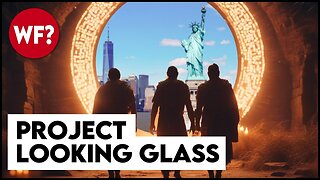 42:22
42:22
The Why Files
3 days agoProject Looking Glass | The Time Warriors of the 2012 Apocalypse
83.4K84 -
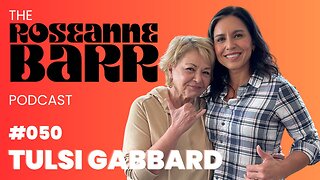 1:36:46
1:36:46
Roseanne Barr
6 days ago $212.98 earnedFor Love of Country with Tulsi Gabbard | The Roseanne Barr Podcast #50
226K672 -
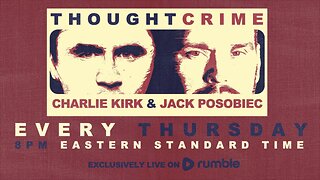 1:47:41
1:47:41
The Charlie Kirk Show
8 hours agoTHOUGHTCRIME Ep. 48 — Trump Rally Aftermath + Pride Month + "White Fortressing"?
88.9K33 -
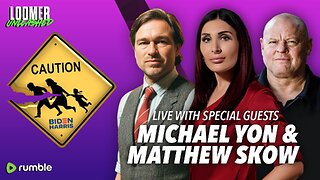 2:15:48
2:15:48
Laura Loomer
8 hours agoEP52: THE GREAT REPLACEMENT: Trump and Biden Spar Over Border Policies Ahead of First Presidential Debate
52.1K27 -
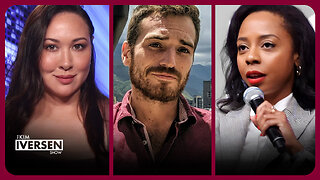 1:29:23
1:29:23
Kim Iversen
9 hours agoJournalists Critical of Israel Fired and Threatened With Arrest! | What Is “Scholasticide” In Palestine?
74.5K104 -
 2:01:58
2:01:58
Melonie Mac
11 hours agoGo Boom Live Ep 6
51.3K13 -
 1:21:32
1:21:32
Game On!
9 hours agoStanley Cup Finals: Oilers vs Panthers Series Preview
41.9K5 -
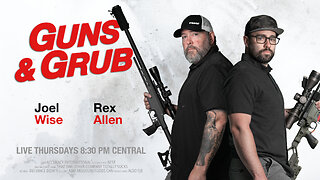 1:15:28
1:15:28
Precision Rifle Network
1 day agoGuns & Grub S2E7
40.5K5 -
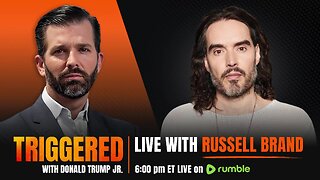 2:23:00
2:23:00
Donald Trump Jr.
15 hours agoLIVE WITH RUSSELL BRAND | TRIGGERED Ep.143
163K248 -
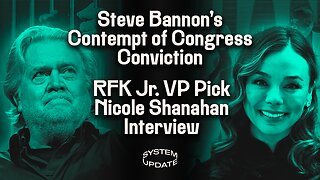 1:19:17
1:19:17
Glenn Greenwald
11 hours agoSteve Bannon's Contempt Charges Reveal Historic Double Standard; Interview with RFK Jr.'s Running Mate Nicole Shanahan on the 2024 Election and More | SYSTEM UPDATE #278
84.3K223